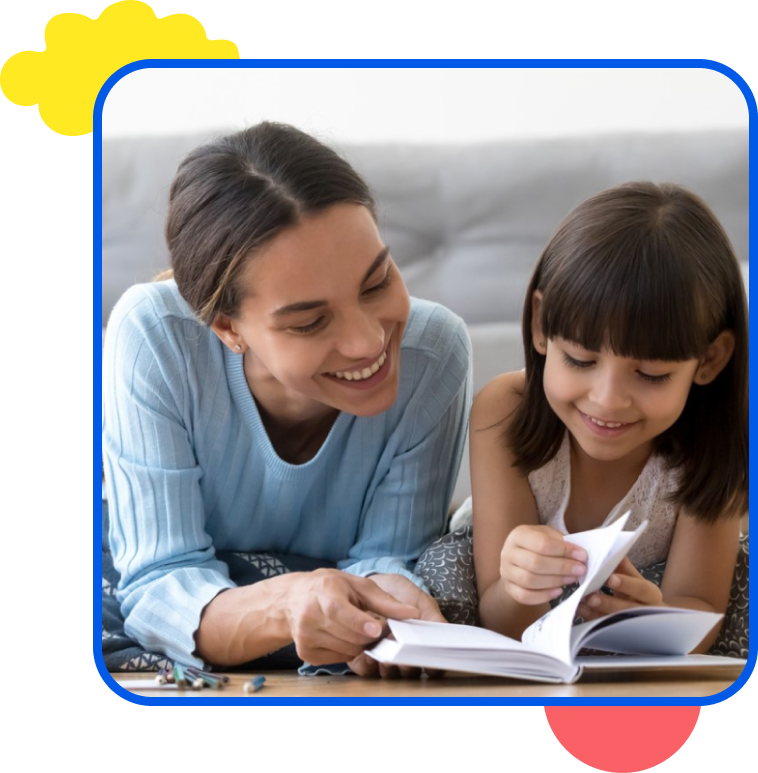A Guide to the IB Bilingual Diploma for Your Child



Want your child to stand out academically and thrive in a globally connected world? Well, if your child’s school offers the International Baccalaureate (IB) Diploma Program, then the IB Bilingual Diploma could be a game-changer!
Earning this distinction not only sets your child up for success in diverse academic and professional settings but also enhances their cultural awareness.
What are the requirements to earn the bilingual diploma? What benefits come with this academic distinction? How can you help set your child up for success?
Those are the questions we’ll answer in this blog post as we provide insights into the unique aspects of the IB Bilingual Diploma.
We’ll also share how your child can enroll in a free trial of online language classes to help them prepare for IB language courses.
Let’s begin!
What is the IB Bilingual Diploma?
The IB Bilingual Diploma is a version of the International Baccalaureate (IB) Diploma that acknowledges a high school student’s proficiency in two languages.
This unique feature sets it apart from the traditional IB Diploma, strongly emphasizing linguistic diversity and competency.
Students engage in a comprehensive exploration of language through two distinct groups.
- Group 1 (Studies in Language and Literature)
- Group 2 (Language Acquisition)
By championing linguistic and cultural diversity, the IB Bilingual Diploma equips students with the skills to thrive globally.
IB Bilingual Diploma Requirements
Achieving an IB Bilingual Diploma involves fulfilling specific language requirements and successfully completing the International Baccalaureate (IB) program.
Here are the key criteria for obtaining an IB Bilingual Diploma.
Choose Two Languages
Students must choose two languages to fulfill the bilingual requirement. One language is selected from Group 1 (Studies in Language and Literature), and the other is selected from Group 2 (Language Acquisition).
Language Choices
Students can choose their languages, allowing for a tailored approach based on individual interests and strengths. Common language combinations include studying the student’s native language and a second language, such as English-Spanish or French-Chinese.
Language Proficiency in Group 1
In Group 1, students engage with language through the lens of literature. They must demonstrate proficiency in analyzing literary works and understanding language structure, style, and expression. This involves both internal assessments and external examinations.
Language Proficiency in Group 2
In Group 2, students focus on language acquisition, gaining proficiency in a second language. Proficiency is assessed through a combination of written exams, oral assessments, and practical language use scenarios.
Extended Essay
The Extended Essay, a significant component of the IB Diploma Program, can be written in one of the chosen languages. This essay provides an opportunity for in-depth research and exploration of a topic related to the language studied.
Theory of Knowledge (TOK)
Students must successfully complete the Theory of Knowledge (TOK) course, which explores the nature of knowledge across disciplines. TOK encourages critical thinking and reflection on the student’s understanding of the world.
Passing Grades in All Components
To achieve the IB Bilingual Diploma, students must attain passing grades in all components of the IB program, including internal assessments, external examinations, Extended Essay, and TOK. The passing grade for individual subjects is typically a score of 4 or higher on a scale of 1 to 7.
Cultural Understanding
The IB Bilingual Diploma is not only about language proficiency but also about promoting cultural understanding. Students are encouraged to explore and appreciate the cultural dimensions tied to the languages they are studying.
Maintain Bilingual Proficiency
Throughout the program, students should maintain proficiency in both languages and continue to develop their linguistic skills. This involves regular practice, engaging in language-rich activities, and committing to ongoing language learning.
Overall Points Total
In addition to language requirements, students must meet the overall points total to qualify for the IB Bilingual Diploma. The total includes points earned in all IB subjects, the Extended Essay, and TOK.
Value and significance of the IB Bilingual Diploma
Why might you want your child to pursue the IB Bilingual Diploma? Good question! Here are a few of the most noteworthy benefits.
Global Recognition and Opportunities
The IB Bilingual Diploma holds international recognition, serving as a key to top universities and professional opportunities worldwide. Its global recognition also positions graduates for success in an interconnected job market.
Cultural Proficiency
Attaining the IB Bilingual Diploma goes beyond language skills. Studying literature and gaining fluency in a second language cultivates a nuanced understanding of diverse cultures, facilitating effective cross-cultural communication in various settings.
Enhanced Cognitive Skills
Research indicates that proficiency in two languages necessitates critical thinking, problem-solving, and adaptability—skills invaluable in academic and professional pursuits.
This cognitive demand arises from the constant need for the brain to switch between languages, developing a mental flexibility that enhances linguistic capabilities and contributes to broader cognitive agility.
Expatriate and Multicultural Opportunities
For expatriate families or those with multicultural backgrounds, the IB Bilingual Diploma provides a structured path for students to maintain language and cultural ties.
This not only safeguards cultural heritage but also cultivates a strong sense of identity, enabling students to bridge cultural gaps and navigate diverse international environments.
Preparation for Study Abroad
The IB Bilingual Diploma’s emphasis on language proficiency equips students with the linguistic and cultural competence needed to navigate academic environments in foreign countries.
This benefit is particularly relevant for expatriate parents planning their children’s education abroad.
Tips for parents of children hoping to earn an IB Bilingual Diploma
As a parent, you play a crucial role in supporting your child on the path to earning the IB Bilingual Diploma. Here are practical tips to enhance your child’s language skills and set them up for success.
Encourage Regular Reading Habits in Both Languages
Cultivate a habit of reading in both languages at home. Set aside dedicated reading time, whether before bed, family reading sessions, or individual quiet time.
Exposure to a diverse range of literature and genres in the chosen languages is also important as it enhances vocabulary, comprehension, and fluency.
Create a Language-Rich Environment at Home
The more exposure your child has to the two languages, the more comfortable and proficient they will become. So, surround your child with opportunities to use both languages effortlessly.
For example, you can label household items in both languages, watch TV and movies in the second language, and encourage bilingual communication within the family.
Use Language Learning Resources
To enhance your child’s language proficiency, leverage tools such as language learning apps and language exchange platforms into their routine.
Online bilingual education programs, like LingoCircle, also provide a structured and interactive environment for effective learning. Our online classes go beyond traditional approaches, incorporating engaging activities, language games, and expert instruction by native-speaking teachers.
Set Up Language Exchanges with Peers
Language exchange with peers who speak the target languages can be a fun and effective way for your child to practice, learn new expressions, and develop a deeper understanding of cultural nuances.
You can look for language exchange partners for your child using language learning apps and websites, such as Tandem and HelloTalk.
Plan Cultural Experiences
Immersing your child in cultural experiences related to the chosen languages can significantly contribute to their understanding and appreciation.
If possible, an extended trip to a country where the target language is spoken can also provide an unparalleled opportunity for immersive language acquisition.
For example, if your child is studying French for the IB Bilingual Diploma, a trip to France can expose them to authentic language use, enhance their pronunciation, and deepen their cultural understanding.
How LingoCircle can help students get an IB Bilingual Diploma
At LingoCircle, we understand the unique challenges and requirements of language learning, especially when aiming for academic milestones like the IB Bilingual Diploma.
Tailored specifically for young learners, our classes also leverage interactive tools, games, and native-speaking instructors to make the process of mastering new languages enjoyable.
The flexible nature of our online classes also allows your child to learn whenever is most convenient for their schedule. We have classes after school and on weekends.
Want to see if our online classes are suitable for your child? Click here to try the first class for free!


Simple Ways to Learn a Second Language at Home
Get resources and tips to help supplement your bilingual education journey at home.
By providing your email you are signing up to receive emails from Bilingual Bebe. Privacy Policy







